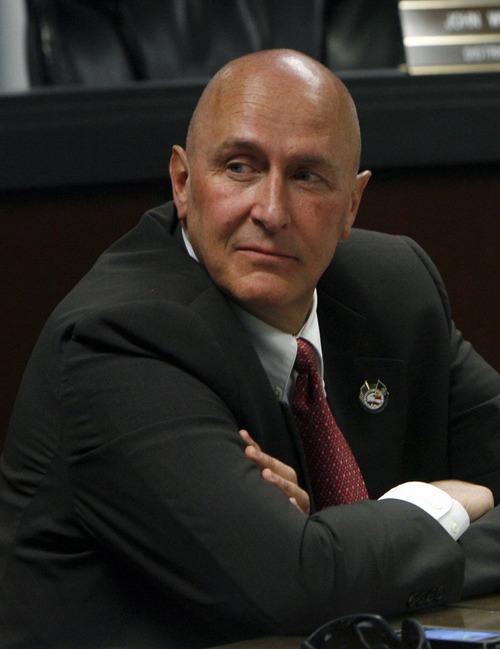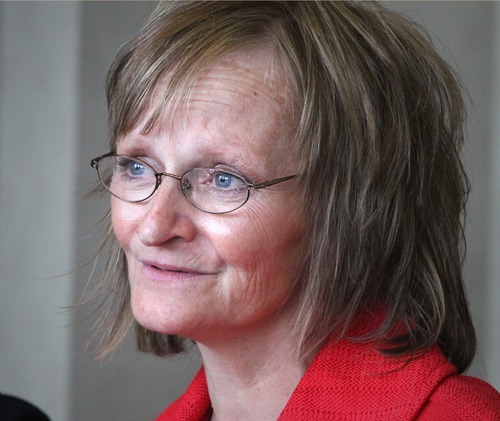This is an archived article that was published on sltrib.com in 2011, and information in the article may be outdated. It is provided only for personal research purposes and may not be reprinted.
The Utah Attorney General's Office on Friday filed its appeal of the exoneration of Debra Brown, who spent 17 years behind bars for murder before her release last month.
A judge in May found Brown, 53, "factually innocent" of the November 1993 shooting death of her friend and employer, 75-year-old Lael Brown, who is of no relation. Brown's case was the first to be revisited under a 2008 statute allowing convicts to challenge the facts of their cases when new evidence is discovered, even if there is no new DNA evidence.
But in a filing with the Utah Supreme Court, the AG's Office questions whether 2nd District Judge Michael DiReda had sufficient proof of "clear and convincing evidence" regarding Brown's innocence.
The AG asks whether a trial court may reassess or reweigh the credibility of evidence presented to a jury.
Also at issue is what DiReda considered to be new evidence.
At Debra Brown's trial, jurors heard that she found Lael Brown's body inside his Logan home on Sunday morning, Nov. 7, 1993, and called police, who arrived at 8:45 a.m.
Prosecutors said at trial that Lael Brown was killed at about 7 a.m. on Saturday, Nov. 6, 1993 — a time for which the woman had no alibi.
But during recent hearings, Terry Carlsen and Delwin Hall — in testimony never heard by the jurors who convicted Brown — told DiReda they saw Lael Brown at a restaurant that Saturday afternoon.
DiReda therefore found Debra Brown could not be the killer because Lael Brown was seen alive after the time of death as theorized by prosecutors. The judge also found that Debra Brown could not have killed the victim at any other time because she had alibis.
Carlsen told DiReda he saw Lael Brown eating with his son at a restaurant on that Saturday afternoon. But the AG's Office notes that while DiReda found Carlsen's testimony to be "newly discovered," it was not credible enough to meet the standard of "clear and convincing evidence." Also, Lael Brown's son denied he had dinner with his father that night, according to testimony before DiReda.
As for the testimony of Hall, who also said he saw Lael Brown at the same restaurant at about the same time as Carlsen, the AG contends that DiReda found his testimony was not "newly discovered." Hall's name was on the defense witness list for the original trial, but he was not called to testify.
Nevertheless, DiReda found Hall's report to police and his testimony to be credible and accurate, the AG notes in its appeal.
On May 9, the day Brown was released from prison, Attorney General Mark Shurtleff said his office would not appeal and released a statement saying "this was Utah's first case like this and I am convinced these types of challenges will be rare."
Shurtleff later reversed course, saying he feared Brown's release would set a "fatally flawed" legal precedent allowing "another bite of the apple to everybody who's been convicted of the crime."
Brown remains free while the high court considers the appeal. Attorneys representing Brown are expected to reply to the state's filing.





